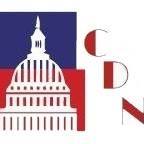


Tether, the offshore crypto giant, wants you to believe it has suddenly become an American company. After building its empire in the secrecy of the British Virgin Islands, Tether is now rolling out a new stablecoin called USAT that it says is tailor-made for U.S. markets. The pitch is simple: American branding, an American “issuer,” and a few high-profile names to dress it up. The reality is uglier. This is still a foreign-rooted outfit trying to trick Washington and investors into thinking it belongs here.
The facts are plain. Tether is the largest stablecoin operator in the world, with a circulation of over $170 billion. Its profits come from buying U.S. Treasuries and pocketing the yield. By some estimates, it is now one of the largest non-sovereign holders of Treasury bills in the world. This begs the question: Does a foreign holder of US Treasury bills at this scale create a national security issue?
Instead of building its business in America, Tether planted itself offshore, in the same secrecy havens exposed in the Panama Papers and the FinCEN Files. The company was even forced to settle with the New York Attorney General for misleading the public and pay fines to the CFTC for lying about its reserves. That’s the history.
Now Congress has passed the GENIUS Act, requiring stablecoins offered in the U.S. to be issued under U.S. law. Instead of moving its core operations here, Tether invented a new brand, USAT, and outsourced the “American” part to Anchorage Digital Bank. On paper, Anchorage checks the box because it has a U.S. trust charter. In practice, this is a bank with a history of anti-money laundering failures, federal investigations, and offices located across Portugal and Singapore. It even took investment money from Singapore’s sovereign wealth fund. Calling this arrangement “Made in America” is laughable.
This is what globalists do. They hide behind paperwork and branding to get access to American markets while keeping their profits and control offshore. Instead of building something real in the United States, Tether went shopping for a partner that had just crawled out of the regulatory penalty box. Anchorage needed a client to prove it was back in business. Tether needed an American mask. It’s a marriage of convenience, not of principle.
To give the whole charade a political face, Tether tapped Bo Hines, a former Trump-backed congressional candidate. Conservatives remember him for talking tough on “America First” while handing out hats made in China. Now he’s lending his name to a company that relocated to El Salvador just months ago and has never produced a full independent audit. If the goal is to convince Congress this is all-American, hiring a failed candidate with a spotty record doesn’t exactly inspire confidence.
America doesn’t need another foreign-owned company pretending to be American. We don’t need offshore firms raking in billions from U.S. Treasuries while claiming patriotism only when it suits them. And we certainly don’t need compromised banks and political cast-offs being used as props to give the illusion of compliance in exchange for access to American consumers.
A true America First stablecoin would be built here, owned here, and accountable here. It would embrace transparency, audits, and real regulation instead of paperwork tricks. Tether’s USAT is none of that. It’s just another foreign company trying to cash in on the American market while keeping its roots offshore.

